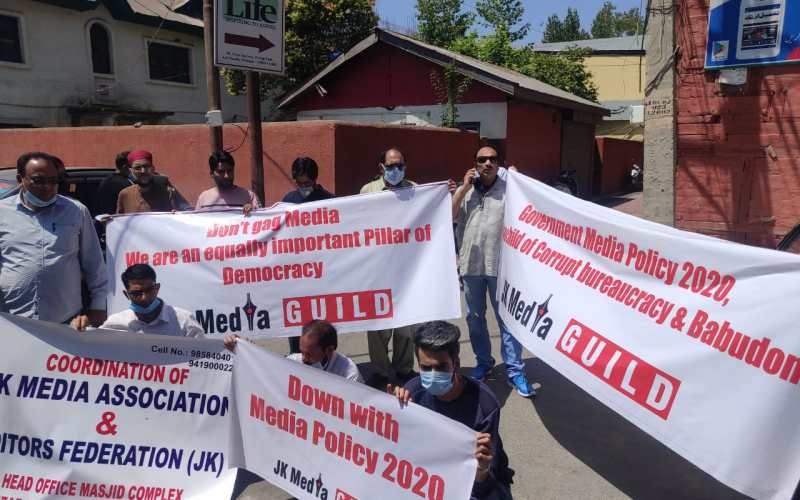RESPECT SANCTITY OF THE MEDIA
A tormented world, shaken out of its comfort by a pandemic whose devastating reach mocks humanity’s collective capacity to prevail, yearns for answers about our common future. Glaring and persisting inequities of the world order, accentuated by the virus and digital divide foretell the story of a failed leadership and failing realisation of the millennium development goals.
The question of leadership befitting the moment was, therefore, seldom more relevant. History beckons us once again to summon leadership that can navigate a happy and secure future for all, anchored in the inviolability of values that define our humanity. Whether one subscribes to the view that history is a chronicle of accomplishments of the great men and women of their time, or believes that they do not make history “…as they please but under circumstances existing already…” the centrality of leadership at transformative moments in history stands empirically established.
As Will Durant reminds us, “…leaders are the very life and blood of history, of which politics and industry are but a frame.”ArnoldToynbee,inhismonumental work, A Study Of History, tells us similarly, that the rise and fall of civilisations is a history of periodic challenges and our response thereto. Clearly, the question of leadership is integral to the context that summons it.
A survey of the present landscape is bothdauntinganddepressing.Theglobal retreat of democracies, relegation of the ethical imperative to an obsessive pursuit of raw power as an end in itself, a crisis of institutional legitimacy and the challenge of forging a political consensus necessary for hard but necessary decisions, interrogate the proclaimed assumptions of democratic resilience.
The rise of ‘jingoistic nationalism’ in confrontation with an international cooperative endeavour to face common challenges, a skewed balance between demands of security and sanctity of civil rights, the sordid saga of fake news and misinformation, an unprecedented global financial crisis that has weakened our collective capacity to rescue national economies, loss of millions of jobs with an estimated 3.4 trillion dollars lost in labour revenue and the resultant social distress, heightened geopolitical rivalries, racism, xenophobia and woeful absence of a united global response to the challenge of climate change, collectively present a potent cocktail of societal instability and political disruption.
Invading a section of media in Kashmir on flimsy accusations is a worst example of suppression of expression of people’s voice and aspirations which can be simply translated as the “censorship” on the fourth estate of the Nations democracy. There have been numerous examples, wherein reputed journalists working for credible and prominent media houses of the country got harassed by the law enforcing agencies for their reports on situation. This new tradition of unwarranted interference has spread a wave of fear among the journalistic fraternity and everybody is scared of writing or reporting in Kashmir. Although journalists too have to maintain the sanctity of the professional ethics, while reporting on the sensitive nature of the situation in Kashmir which is influenced by several socio-political factors, but the government has to be fair while dealing with media.
The government action against the reputed and oldest English daily, The Kashmir Times and the most prominent and highly circulated Greater Kashmir in Srinagar has to be seen in the backdrop of euphoria created in recent past by the government agencies only to demonize the importance of the media here. Certain government agencies had adopted varying tactics to dilute the importance of media and discredit their credibility among the people for the reasons best known to them. Although, the motive behind this virtual censorship can’t be understood, but it is certain that this only bridge between the government and the people is being dismantled to suit the designs of certain anti-people and anti-national elements only. It is clear that certain elements with vested interest in the governmentaremisleadingittocarryonwiththeir corrupt practices unabated.
The naïve attitude adopted by the government while handling media in Kashmir has confined the watchdog to unusual limits as none among the state institutions now brazenly refuse to respond the queries of public importance by the media persons only because of demonizing stature of the media created by the government.
Media in Kashmir is credited with exposing hundreds of scandals, misappropriation of public money, opportunism, malpractices and many other issues which used to help the government closer to people by addressing these issues of grave importance, but now, in the given situation, the people have lost faith in media as they doubt the credibility because of the reports squeezed in pressure.
The government has to address the growing uncertainty among the media persons in Kashmir for a healthy and credible democratic system of governance. For this government needs ease the pressure being exercised by certain government agencies against the media. Otherwise, the evil elements in and outside the government will collapse the trust and faith of the people in the democratic system.


Comments are closed.